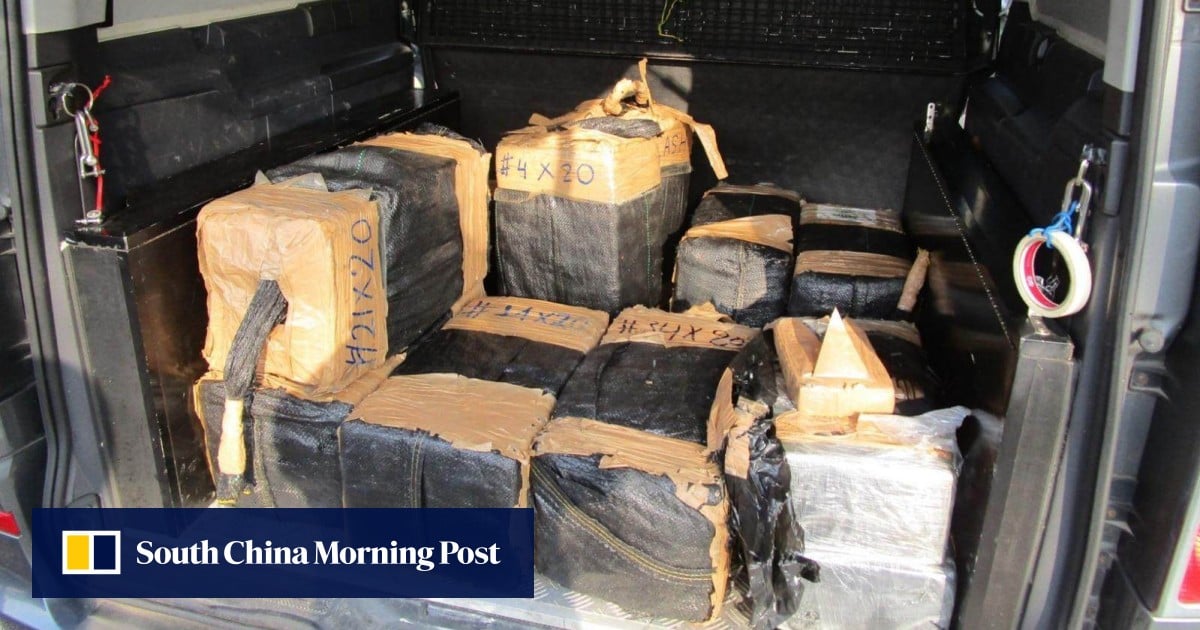The authorities in Hong Kong have refused to extend the employment visa of a Bloomberg journalist, effectively expelling her from the Chinese territory where she has lived and worked for six years.
Rebecca Choong Wilkins, a reporter on the financial newswire’s Asia government and politics team, was applying for a routine visa renewal when she learned it had been rejected without any reason given.
“After six years of reporting in Hong Kong, and at eight months pregnant, I’m very sad to be leaving my colleagues, friends and the place I’ve called home,” Ms. Choong Wilkins wrote on social media.
In a statement, the Foreign Correspondents’ Club of Hong Kong said it was “deeply concerned” by the news.
“This decision and the lack of explanation reinforces widespread concerns about the erosion of press freedom in Hong Kong,” the club said. “We support any application for this decision to be urgently reviewed and call for future applications for employment visas and visa extensions for international journalists to be handled in a timely and transparent manner.”
Hong Kong’s Immigration Department refused to comment on the case, saying only that applicants had to “meet the eligibility criteria.”
In a statement, Bloomberg said it was providing support to Ms. Choong Wilkins and will “continue to work through the appropriate avenues to try to resolve the matter.”
Ottawa says Hong Kong bounties for activists are a threat to Canadian sovereignty
Unlike mainland China, Hong Kong does not have a dedicated journalism visa for international reporters working in the territory, who are treated like any other foreign employee. Even as political freedoms in Hong Kong have tightened due to an ongoing crackdown by the Chinese authorities, it has remained a hub for media covering Asia, with Bloomberg, CNN and Reuters all operating large newsrooms in the territory.
It is rare for the Hong Kong authorities to reject or refuse to renew employment visas for foreign journalists, though this has become more common in recent years.
In 2018, an editor with the Financial Times, Victor Mallet, had his visa renewal rejected after he hosted a controversial pro-independence speaker in his role as vice president of the FCC. In September, Louise Delmotte, a photographer with the Associated Press, was also denied a visa renewal. One of her best known works was a long-lens photograph of jailed former Apple Daily publisher Jimmy Lai, taken from a hill overlooking Stanley Prison, which has featured heavily in international coverage of Mr. Lai’s trial.
Media mogul Jimmy Lai’s sedition trial begins closing arguments in Hong Kong
The Globe and Mail is aware of several other recent cases in which visas or extensions have been denied but newsrooms have not made the incident public. Writing on social media, Selina Cheng, chair of the Hong Kong Journalists Association, said Ms. Choong Wilkins is “Bloomberg HK’s second visa denial that we know of, and at least the fourth time a business/finance journalist was denied a visa to Hong Kong in recent years.”
In addition to a minority of candidates being denied outright, it has become routine for all journalists seeking visas to asked questions about their work and political views, something which was almost unheard of before 2020.
“People working in journalism and journalism education, when renewing or obtaining a new visa, were asked literally hundreds of questions that required 10,000+ words in response,” Ms. Cheng wrote. “Some were asked to provide months-worth of bank statements and all dates when they met their country consuls. Then an endless wait.”
Such unpredictability, she added, “creates great difficulty not only for the international press, but also for media as international businesses, and most of all for the people trying to set up their family and long-term life in Hong Kong.”
Ms. Choong Wilkins’ visa denial is particularly notable, as an extension would have brought her to the seven years required to receive permanent residency in Hong Kong, another feature of the territory’s immigration law which differs to that of mainland China, where journalists are always in fear of visas being revoked if they fall afoul of the authorities, no matter how long they work in the country.
James Griffiths is a former executive committee member of the Hong Kong Journalists Association.

